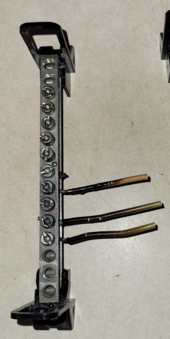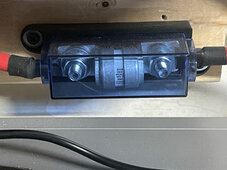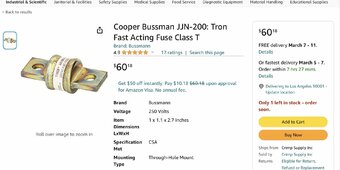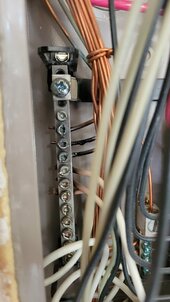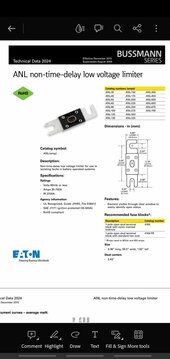Gentleman Mike
New Member
I got this 150 amp fuse to go inline on my 1/0 AWG battery cable: https://www.amazon.com/dp/B0BW4TLBST
And even just charging my 48 volt batteries at 80 amps, this fuse and holder get really hot after 15 minutes! Like I can't keep my fingers on it for more than 10 seconds. I turned my charge current down to 40 amps until I can fix this issue, and even at 40 it gets warm. Not warm enough to scare me, but there is clearly a problem here that needs to be resolved.
How can I fix this, or am I just using an inappropriate product here? What brand and type do the experts here recommend I use?
And even just charging my 48 volt batteries at 80 amps, this fuse and holder get really hot after 15 minutes! Like I can't keep my fingers on it for more than 10 seconds. I turned my charge current down to 40 amps until I can fix this issue, and even at 40 it gets warm. Not warm enough to scare me, but there is clearly a problem here that needs to be resolved.
How can I fix this, or am I just using an inappropriate product here? What brand and type do the experts here recommend I use?



